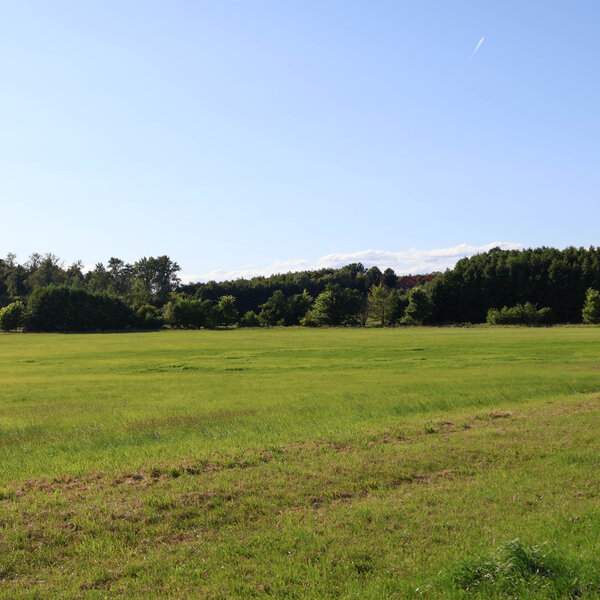In organic farming, the boundaries are clear: a circular economy that is as closed as possible and the avoidance of chemical synthetic pesticides and mineral nitrogen fertilisers set the guidelines. This is particularly beneficial for water and biodiversity protection. However, there is a yield gap that cannot be closed with current organic farming methods. In our Green Mineral Fertiliser experimental field, we are investigating the extent to which small, ecologically compatible quantities of climate-friendly mineral fertilisers can help to close this yield gap.

"The use of climate-friendly, so-called green mineral fertilisers and organo-mineral fertilisers is an innovative approach to climate protection and ensuring productivity in arable farming. Together with innovative crop rotation systems, this can help to combine the advantages of organic and conventional production systems, offering the best of both worlds."
Dr Andreas Pacholski, Project Coordinator

Organic farming is a legally regulated agroecological land and food production system. Production is based on the principle of circular economy and does not use chemical synthetic pesticides or easily soluble mineral nitrogen fertilisers. This protects biodiversity and water. In Germany, around two million hectares were farmed organically in 2024. This corresponds to around twelve percent of agricultural land. Politically, the EU is aiming for 25 percent and Germany for as much as 30 percent by 2030. A key problem here is the difference in yield: harvests can be up to 50 percent lower than in conventional crop production. These are critical figures in terms of global food supply and land requirements. So far, it has not been possible to close the gap with the known methods and regulations of organic farming. One solution could be so-called green fertilisers, i.e. climate-friendly fertilisers. These use renewable energy or green hydrogen or methane for the energy-intensive synthesis of nitrogen. In addition, nutrients could be obtained by recycling nutrient mixtures such as manure or biogas fermentation residues.
There have been no scientific trials on supplementary fertilisation in organic farming to date. Although novel mineral fertilisers are promoted by the new EU Fertiliser Regulation, their effectiveness has not been sufficiently investigated. Furthermore, such readily available nutrients are not yet permitted in organic farming. Trials with green manure should therefore also demonstrate whether the fundamental objectives and rules of organic farming can be complied with.
In Trenthorst, the arable land in the experimental field is also permanently greened in order to store a larger amount of soil carbon. This will allow researchers to investigate whether and how crops develop in this environment. Area efficiency, water management, soil compaction and soil fauna, as well as aspects of economic efficiency and product quality, will also be examined.
The scientific findings will be incorporated into discussions on guidelines for organic farming legislation.

